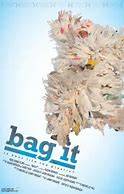A plastic shopping bag is used for minutes, but will impact the environment for a lifetime — in some cases, hundreds of lifetimes.
At least a trillion plastic bags are used worldwide, according to U.S. Environmental Protection Agency, and only a fraction of those are recycled. The rest will disintegrate over hundreds of years in landfills, or break down into smaller and smaller pieces in ecosytems around the world, releasing toxins and harming wildlife.
On Saturday, the Kenaitze Tribe’s Youth Council and suicide prevention program, Yinihugheltani, will help bring attention to the issue of plastic bag pollution by hosting a free screening of the documentary “Bag It.”
The film, which focuses on the long-term environmental costs of disposable plastic bags, is part of an effort by the youth council to educate the public about the effect plastic bags are having on the community, Audre Gifford, Yinihugheltani project coordinator, said.
One of the goals of the Yinihugheltani program is to connect youth to the larger community, and environmental issues are something they are passionate about, Gifford said.
“We want to ensure they have a place and a voice here,” she said.
When members of the council discussed what changes they wanted to see, there was unanimous agreement on a plastic bag ban.
“It was a very humbling moment,” Gifford said. “To hear them say we want you to be better, and take care of the world that you leave to us.”
The movement to ban plastic bags has been gaining steam worldwide, with dozens of U.S. cities implementing some form of a bag ban. Wasilla is the latest of several Alaska communities to ban single-use plastic bags. In recent years, Bethel, Cordova, Homer and Hooper Bay have passed ordinances banning restaurants, retail stores or groceries from distributing plastic bags.
The film screening is just one part of the youth council’s efforts to get rid of plastic bags. The group’s next step is to begin collecting signatures to show public support for a plastic bag ban and to work with city officials to take action on the issue. Gifford said the council reached out to city officials and invited them to the screening.
“We invited our community leaders to come and listen, and hopefully we will get a council member on board to propose an ordinance,” she said.

